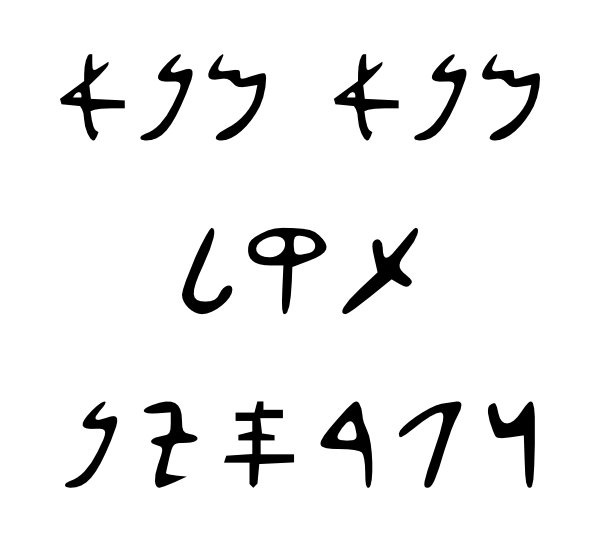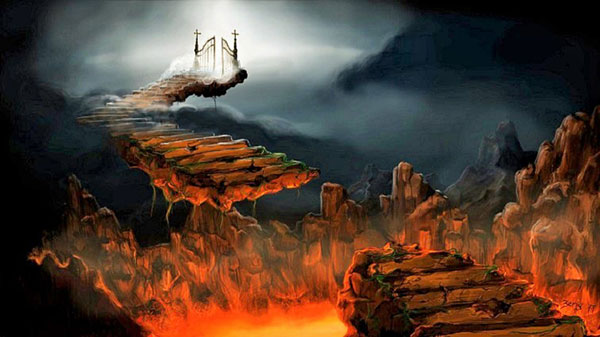Revelation Six - When The Four Horsemen Ride I would love to jump ahead to Part 5 and talk about the prophecy in Daniel 7 that is also still in effect today - just like the image in the dream of Nebuchadnezzar in Daniel 2. But, we have a few things that we can learn from Daniel 5 and 6, and some of those things help clear up a couple of questions that I had. How did the Persians take over Babylon so quickly? Why did the Persians keep so much of the Babylonian bureaucracy in power? Well, we have a few answers to that, and I think that you'll find the entire story to be interesting. Including the incredible demonstration of faith by Daniel. ———————————— Keep this ministry alive with a donation. And, read my two books: I created five Android Apps that will help you read through the Bible in a Year. You can find them here: https://revelationsix.com/android-apps/ If you miss my rantings about geopolitics, idiocy, resource collapse and incompetent globalism, follow me on Twitter. ———————————— A Biblical Overview Of Daniel - Part 4Daniel 5 - And How Babylon Fell To CyrusDaniel 5 opens with a feast held by foolish King Belshazzar for a thousand of the highest ranking lords. He decides that drinking from the gold and silver cups from the First Temple was a good idea. And, while they do this, they begin to praise other gods - of gold, silver, bronze, iron, wood and stone. That's when a hand appears and writes upon a wall. Belshazzar is absolutely terrified, and says that whoever tells him the meaning of this, he will be the third ruler of the kingdom. Wait. Third Ruler? Why not Second Ruler? That's due to the fact that Belshazzar shared the rule of Babylon with his father Nabonidas, who married Nebuchadnezzar's daughter and overthrew Nebuchadnezzar's sons in a coup. So, Belshazzar could only make someone the 'Third Ruler of the Kingdom' because there were already two. And, there's a fascinating discussion about Nabonidas, here: The Last King of Babylon However, no one could decipher the writing, so things got pretty desperate until the queen showed up. Wait. The Queen wasn't there? Well, she was his mother, but Belshazzar seemed to want to keep anyone associated with Nabonidas away from this special gathering, since he probably didn't want anyone to be reminded that his dad was still around. But, his mom tells him about Daniel, who has spiritual power and understanding from the Holy God. By the way, Belshazzar's mom refers to Nebuchadnezzar as his father, when we would normally call him a grandfather. But, it seems customary for people to claim a grandfather as their father, if the grandfather is more prominent than the father. But, back to the story... Daniel arrives and tells Belshazzar that he's been a complete moron, who did not remember what happened to Nebuchadnezzar, his 'father'. Daniel then goes on to interpret what was written on the wall: מנא מנא תקל ופרסין (Mene Men Tekel Upharsin) Here's an interesting tidbit of knowledge that most people don't know. Those Hebrew characters aren't actually the original Hebrew that Daniel spent his first years of life reading. Those characters (above) are Aramaic/Neo-Babylonian/Akkadian. If the more modern Hebrew characters had been used, the wise men might have understood at least something of the message. But, what if they were written in the original, ancient Hebrew characters that Daniel understood? I'm speculating a bit, but here's what I mean: So, the handwriting on the wall would have looked like this: And no, I can't read that. I can read the "מנא מנא תקל ופרסין", but I can't read the original Ancient Hebrew characters. However, Daniel could. And he did. Here's the question: Why did the Israelis change the character set for written Hebrew? The letters didn't change. The content of the Bible didn't change. Just the way that the characters were written. And, I'm not sure that we can trust the biased sources that we have, that might describe why this change happened. But, I'm very curious about this, even though it really doesn't matter much. Nothing was changed in the Bible, except the shape of the letters it was written with. Now, back to Daniel. Daniel interprets what was written, which basically says that Belshazzar is an arrogant midwit who turned his back on God, and now his kingdom is over and given to the Persians. Belshazzar makes Daniel the 'Third Ruler' of the kingdom. And, Daniel goes back home, shaking his head. What comes next is not from a Biblical source, but from what might be a somewhat overly dramatic depiction from something called the Cyropaedia - the biography of Cyrus the Great. Going back home is exactly what would have saved Daniel's life, since just a few hours later, General Gobryas personally led a group of soldiers in a decapitation strike against Belshazzar and his 1000 highest leaders. Here's a description of the event from the Cyropaedia 7:5.26–30:
It was a very clever, high-risk, high-reward attack. King Cyrus then called on everyone who knew Assyrian to stay in their houses. By dawn the Babylonian soldiers knew that their leaders had been killed and they were persuaded to surrender. Cyrus then disarmed the populace, and put all the weapons into secured storage. By the way, almost all the Babylonians welcomed Cyrus, since both Nabonidas and Belshazzar neglected the worship of Marduk for ten years and instead pushed everyone to worship the moon god Sin. And, the drunken celebration Belshazzar was involved in, was the eve of the big spring festival for Sin. And, the average Babylonian wasn't real happy with their king over this change in the official religion. Then, it appears that General Gobryas is rewarded for his capture of Babylon by changing his name to Darius and appointing him as ruler of Babylon. Cyrus then continues with his conquest of the Middle East, while Gobryas/Darius rules Babylon. Assuming that my speculation about General Gobryas is correct. There is an interesting discussion of who Darius is, here: Who was Darius in the Bible? By the way, feel free to disagree with my speculation that Gobryas was given Babylon to rule. But, Gobryas knew the Babylonians well, and would have been a good choice for the job. However, this guy also gives a good argument for Cyaxares II being Darius the Mede, which also makes sense. Chapter 6 - The Incredible Faith Of DanielSo, after the dust settles, Darius sets up the bureaucracy again and makes Daniel one of the three highest governors within his administration. And, 120 'satraps' answered to Daniel and the other two governors. But, Daniel was such a good administrator that Darius was thinking about putting him in charge of everything. And, the Deep State did NOT like that idea. (And yes, there's always a Deep State.) So, they set up a plan to get Daniel killed. They went to Darius and said:
Can you imagine a king with an opportunity like this? Darius must have been jumping for joy that this amount of honor and power was being freely given to him. He was new to the job and would have leaped at any opportunity to sign something like this. When Daniel heard that this decree had been made, he knew exactly what was happening. But, there is one thing that he was not going to do: No law was going to keep Daniel from worshiping God So, when the time came to pray to God, he opened his windows as he always did and prayed to God out loud - like he always did. In fact, he might even have put an extra bit of volume to his prayers just to make sure that people knew what he was doing. Immediately, Daniel's enemies demand that Darius throw Daniel to the lions. And so, Darius discovers that he's been tricked into killing his best governor, the one he depended upon the most. So, he works hard to rescue Daniel, but finally must do what he decreed. Daniel is thrown into a den of super-hungry lions. Darius spends the night fasting (and probably praying). Once dawn comes, he rushes to the den of lions and calls out to Daniel to see if he has survived. And to his great joy, God sent an angel to protect Daniel. Darius immediately has Daniel's enemies thrown to the lions, who demonstrate their hunger by eating them all before they get to the floor of the lion's den. Like I said, they were super hungry cats. Furthermore, Darius - like Nebuchadnezzar - glorifies God to everyone in his realm:
And then, Daniel is made ruler of all Babylon, answering only to Darius himself. Because of his great faith in God, Daniel was given great wisdom and power. And, he stands as an example to us all, that no matter how dangerous our situation is... God will see us through. It doesn't mean that we'll survive and be given great wisdom and power. But, it does mean that God will be with us all the way. Yea, though I walk through the valley of the shadow of death, I will fear no evil: for thou art with me; thy rod and thy staff they comfort me. - Psalm 23:4 (KJV) We will all walk this valley at least once. Keep your faith in God that He will be with you every step of the way, just as God walked with Daniel. Next week, Lord willing, we will delve into an incredibly important prophecy that is still being fulfilled, as we speak. Pray for the peace of Jerusalem. ———————————— My people are destroyed for lack of knowledge. ———————————— Keep this ministry alive with a donation. And, read my two books: I created five Android Apps that will help you read through the Bible in a Year. You can find them here: https://revelationsix.com/android-apps/ If you miss my rantings about geopolitics, idiocy, resource collapse and incompetent globalism, follow me on Twitter. ———————————— |





